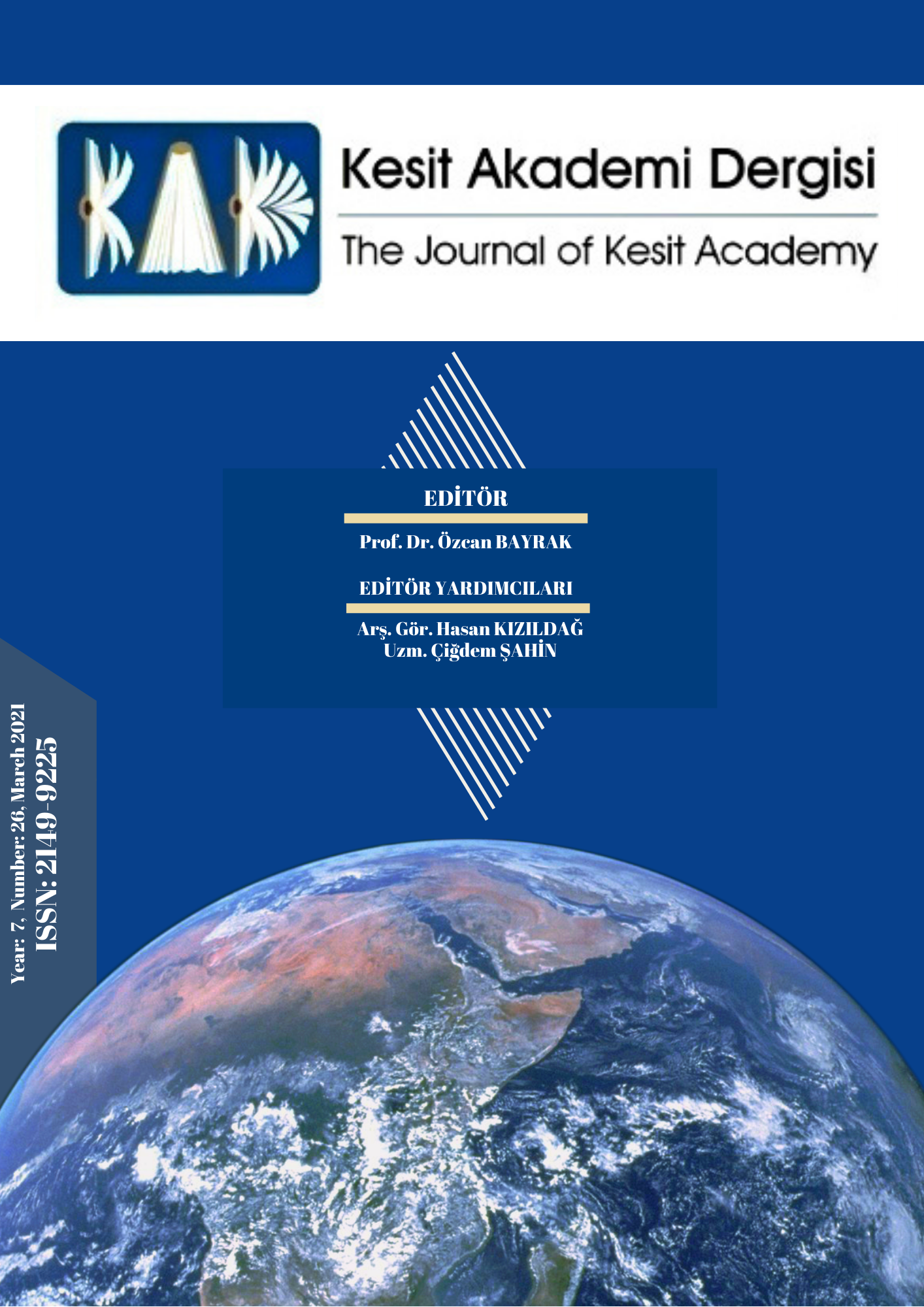Author :
Abstract
Siegfried Sassoon’un şiirlerinde savaşa karşı tutum bakımından büyük farklılıklar bulunmaktadır. Bu bağlamda Sassoon’un şiiri, savaş öncesi ve savaş sonrası olmak üzere iki kategori altında ele alınabilir. Sassoon, savaşa ilişkin kişisel deneyimlerinin güçlü etkisi ile savaşa yönelik tutumunda vatansever bir duruştan savaş karşıtı bir söyleme radikal bir dönüşüm yaşamıştır. Bu bağlamda bu yazı, Sassoon’un savaş öncesine ait ve siper savaşının koşullarını yansıtan yapıtlarını, bu çalışma için seçilen ‚Absolution,‛ ‚The Effect,‛ ‚Suicide in the Trenches‛ ve ‚The Dug-Out‛ şiirleri üzerinden ele alacaktır. Bu analizde Michel Foucault’nun söylem kavramından yararlanılacaktır. Çalışmanın nihai amacı ise milliyetçi bir söylemin, Siegfried Sassoon örneğinde olduğu gibi birincil elden deneyimler sonucunda nasıl hızlı bir şekilde milliyetçilik karşıtı bir söyleme dönüşebileceğini ortaya çıkarmak-tır.
Keywords
Abstract
Siegfried Sassoon demonstrates a stark difference in his approach to war in his poetry. In this regard, his poetry can be divided into two: his poetry before the war and his poetry after the war. Sassoon experienced a radical transformation from a patriotic stance into an anti-war discourse in his attitude toward the war under the strong influence of his personal experiences of the war. In this context, this study will seek to analyze Sassoon’s prewar poetry and his poetry reflecting trench warfare, in particular his poems, ‚Absolution,‛ ‚The Effect,‛ ‚Suicide in the Trenches,‛ and ‚The Dug-Out‛ in the light of Michel Foucault’s concept of discourse. This analysis will ultimately reveal how a nationalistic discourse may easily turn into an anti-nationalistic discourse contingent on first-hand experience as in the case of Siegfried Sassoon.
Keywords
- Campbell, P. (1999). Siegfried Sassoon: A study of the war poetry. Jefferson, North Carolina: McFar- land.
- Ferguson, J. (1972). War and the creative arts: An anthology. London: Macmillan.
- Foucault, M. (1980). Power/Knowledge. Pantheon Books: New York.
- Hall, S. (2001). Foucault: Power, knowledge and discourse. M. Wetherell, S. Yates, and et al. (Eds). Discourse Theory and Practice: A Reader (pp. 72-81). New York: SAGE.
- Love, N. S. (1989). Foucault & Habermas on discourse & democracy. Polity, 22(2): 269-293.
- Matalon, A. (2002). Difference at war: Siegfried Sassoon, Isaac Rosenberg, U. Z. Grinberg, and poetry of the first world war. Shofar, 21, (1): 25-43. Retrieved January 23, 2021, from http://www.jstor.org/stable/42944017
- Merriam-Webster. (n.d.). Absolution. In Merriam-Webster.com dictionary. Retrieved January 23, 2021, from https://www.merriam-webster.com/dictionary/absolution
- Merriam-Webster. (n.d.). Caper. In Merriam-Webster.com dictionary. Retrieved January 23, 2021, from https://www.merriam-webster.com/dictionary/caper
- Moore, L. H. (1969). Siegfried Sassoon and Georgian realism. Twentieth Century Literature, 14(4), 199-209. doi:10.2307/440596
- Presley, J. W. (2010). Neurasthenia and the cure of literature: Robert Graves, Siegfried Sassoon, Andy Collins. JAC, 30(1/2), 269-313. Retrieved January 23, 2021, from http://www.jstor.org/stable/20866945
- Sassoon, S. (1983a). Sherston’s progress. London: Faber and Faber.
- Sassoon, S. (1983b). The war poems. London: Faber and Faber.
- Sassoon, S. (1945). Siegfried’s journey 1916-1920. London: Faber & Faber.
- Silkin, J. (1972). Out of battle: The poetry of the great war. London: Oxford University Press.





